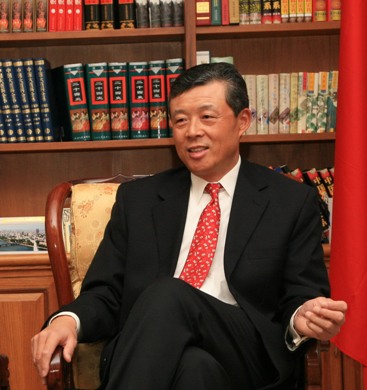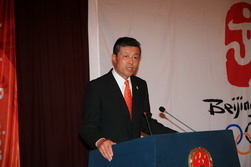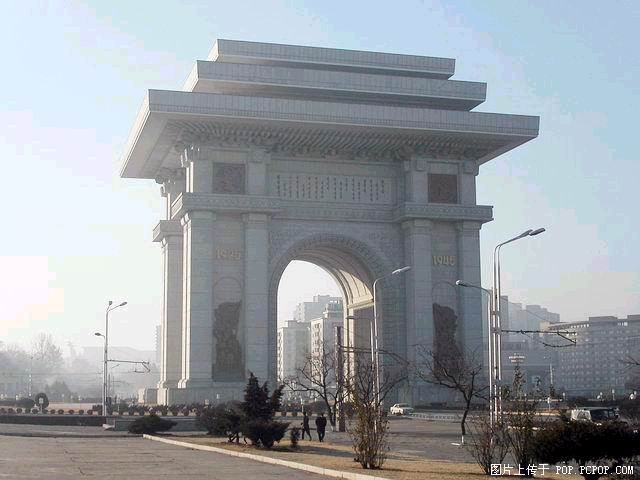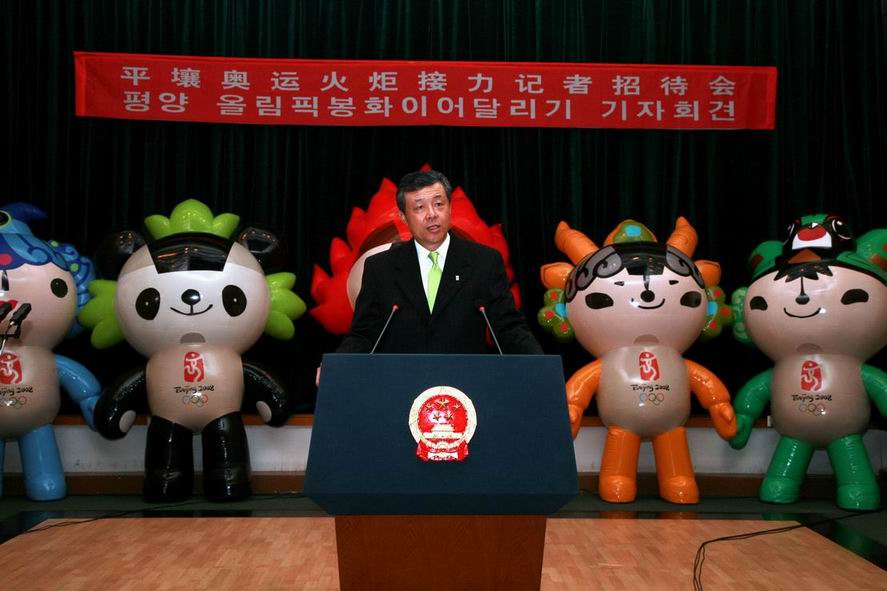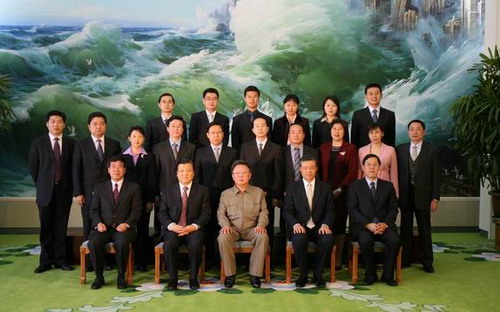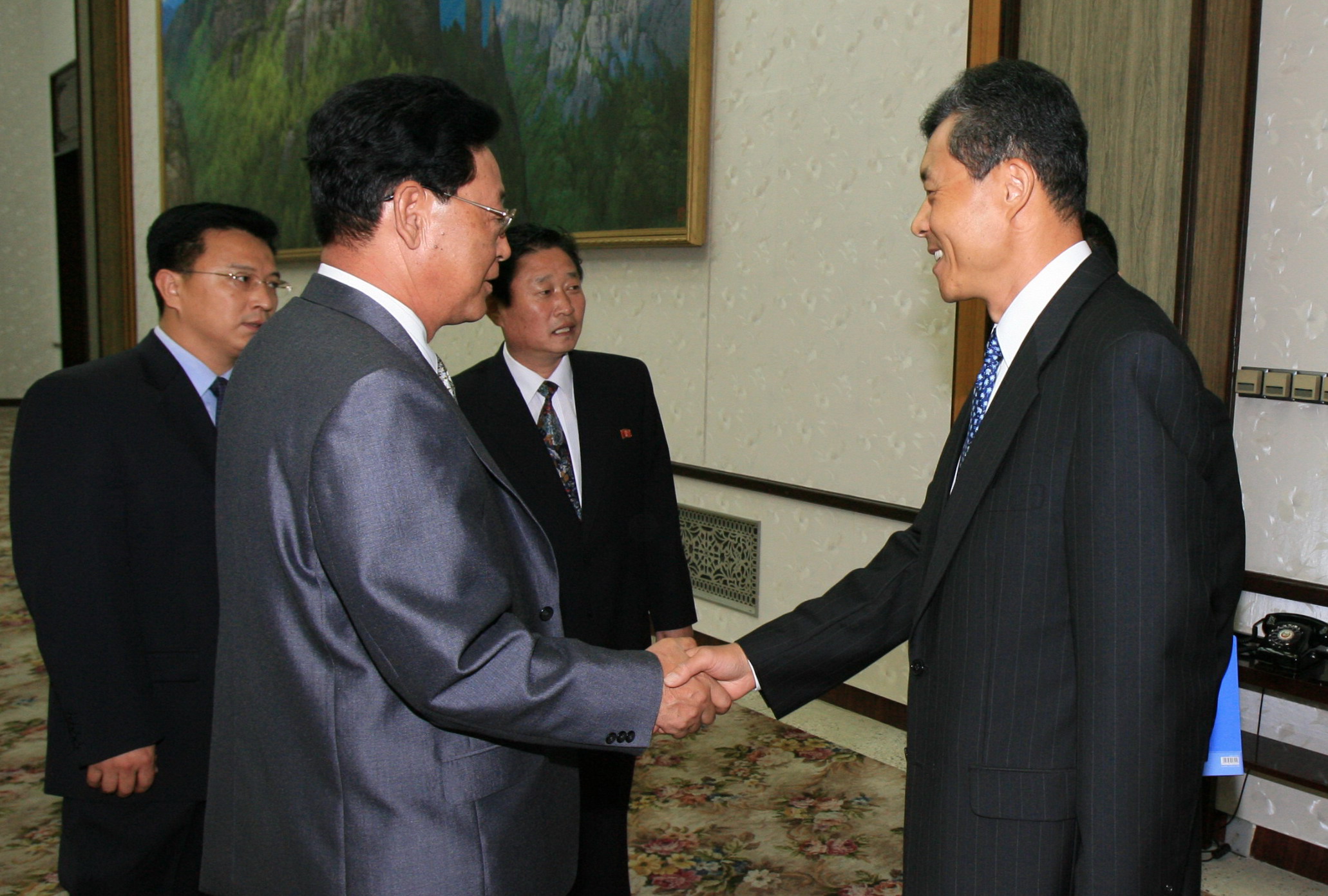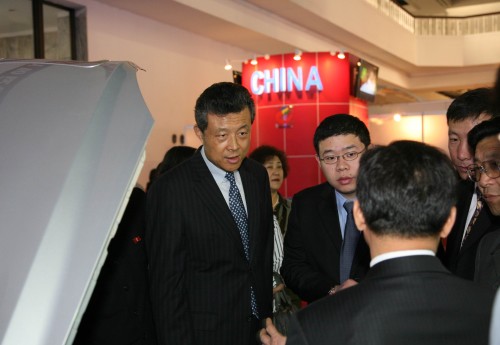Mr. Chairman,
Recently, the situation on the Korean Peninsula has become increasingly tense and even escalated, which has drawn common attention and concerns from the international community. If we can’t effectively control the Korean Peninsula issue, and if conflicts happen, the situation is more likely to become instantly worse and out of control. With many painful lessons in the history, we must give some warnings about it. In view of this, China believes that it is necessary to hold this special meeting in UN Security Council. We hope all parties can reach common consensus to more strictly and completely carry out the Security Council resolutions concerning the Democratic People’s Republic of Korea (DPRK), increase efforts to promote the peace talks so as to make the Korean Peninsula nuclear issue return to the track of settlement through negotiations.
On the Korean Peninsula nuclear issue, China has a quite firm position that regardless of whatever happens, and China needs to follow two basic directions:
Firstly, we must stick to the stated goal of denuclearization. Achieving denuclearization in Korean Peninsula is the foundation of prolonged stability in Korean Peninsula, and is also essential for safeguarding international nuclear non-proliferation system. Whatever happens, this settled goal will not be shaken. In view of this, the Chinese side strongly opposes DPRK’s development and possession of nuclear weapons, and firmly implements all Security Council resolutions concerning the DPRK. We urge the DPRK to stop developing nuclear missiles, live up to its commitment of denuclearization and carry out denuclearization obligations. At the same time, we call on relevant parties to give play to their political wisdom, make political decisions and jointly make constructive efforts to achieve denuclearization in the Korean Peninsula.
Secondly, we must adhere to the way that solves issues through dialogues and negotiations. Force cannot resolve disputes, and will only lead to larger disasters. Dialogues and negotiations are the only ways to resolve disputes and are the sensible choices of all parties. Reviewing the process of resolving the Korean Peninsula nuclear issue, as long as all parties persist in dialogues and negotiations, the situation on the Korean Peninsula will maintain stability and progress will be made in denuclearization. During the five-year negotiations from 2003 to 2007, all parties have successively reached three joint documents, especially September 19 Joint Statement in 2005 which set the “road map” for the comprehensive abandonment of nuclear weapons of the DPRK and the peace in the Korean Peninsula. It is still of great significance till now and has been reaffirmed in all previous UN Security Council resolutions concerning DPRK. However, after the breakdown of the negotiations and dialogues in 2008, the situation on the Korean Peninsula has been gradually getting out of control. The DPRK has continued to accelerate the process of the development of nuclear missiles, having consecutively carried out four nuclear tests and dozens of missiles tests. Thus, we expect all the parties to effectively increase the input in political solutions as well as dialogues and consultations based on the requirements of the UN Security Council resolutions.
Mr. Chairman,
China is not the direct side involved in the conflict of the Korean Peninsula issue. China does not hold the key to solving the Korean Peninsula nuclear issue. As a near neighbor to the Korean Peninsula over the years, China has made unremitting efforts and played a unique role in promoting to solve the Korean Peninsula nuclear issue through negotiations with a responsible attitude of safeguarding the peace and regional stability of the Korean Peninsula. It was exactly because of China’s promotion and supports from all the parties that the Korean Peninsula nuclear issue could develop from trilateral talks to six-party talks. Facing the current situation, China is willing to work with all the parties to continue to make new contributions to solving the Korean Peninsula nuclear issue.
Recently, China has put forward the “suspension-for-suspension” proposal according to the development of the situation on the Korean Peninsula after the proposal of “dual-track” mechanism which is intended to advance and achieve two tracks of the denuclearization as well as building peace mechanism in the Korean Peninsula according to the principles of synchronization, reciprocity and accommodation. The “suspension-for-suspension” proposal is to propel the two sides on the Korean Peninsula issue back into negotiation table through the suspension of DPRK’s nuclear missiles tests and the joint military exercises of the US and the Republic of Korea (ROK), so as to start the first step of the “dual-track” mechanism. The schemes China brings up above combine the short-term goal with the long-term goal and complement one another. They not only focus on solving the most pressing concerns of all sides, but also thereby pave the road for the denuclearization.
It is in line with the requirement of the Security Council resolutions and the fundamental interests of all parties, including the US and the DPRK. It is objective and fair, reasonable as well as practical, and is being understood and supported by more and more countries. At the same time, we know that there are some countries still have doubts. I want to say that the most important thing at present is to stop the DPRK’s nuclear missile development process. To achieve this, we need to put down the contest of who is the first, shelve the argument of who is wrong and pick the “ripe fruits” first, solving the tense problems for the peace of the Korean Peninsula and creating conditions for the stability of the region.
I also want to emphasize that developing to today, the Korean Peninsula issue is not created by any side alone and we can’t always press the responsibility for solving the problem on any side alone. As President Xi Jinping said, only when all the parties concerned shoulder their due responsibilities, meet each other halfway can we solve the Korean Peninsula nuclear issue as soon as possible. We call on all parties, especially the direct parties involved in the Korean Peninsula nuclear issue, namely the DPRK and the US, show sincerity in the dialogues and restart the dialogue process. We also expect that the UN Security Council can reach further consensus and make more consistent voice. At the same time, China is willing to take an open attitude, listening to the useful suggestions from all sides. As long as it is conducive to restarting the dialogues and negotiations, achieving the goal of denuclearization as well as maintaining peace and stability on the Korean Peninsula, we all can sit down and discuss it together.
Colleagues, on the occasion of the UN Security Council’s special meeting, China thinks that there are two imperative things requiring all the parties to meet each other halfway and work together.
First, we should ease tensions on the Korean Peninsula. The situation now on the Peninsula is very severe. The Chinese side strongly urges all parties to maintain calm and restrained, and avoid words and deeds that cause mutual stimulation and lead to misjudgment. What I want to stress is that there aren’t and should not have double standards on this issue. We call on the DPRK to abide by the UN Security Council resolutions and not continue to push forward the development of nuclear missiles. At the same time, we also require the US, the ROK and other countries not to continuously implement and even expand military exercises and military deployment against the DPRK.
Second, all parties should fully understand and implement the Security Council resolutions concerning the DPRK. So far, in addition to a series of resolutions on sanctions against the DPRK, the resumption of Six-Party Talks is explicitly required to avoid escalation of tensions through adherence to the dialogue-based approach to the issue. In other words, both the implementation of sanctions and resumption of talks are to execute the Security Council resolutions. The two approaches can’t be neglected or replaced each other. For the DPRK’s acceleration on the development of nuclear missiles, the international community is necessary to strengthen its efforts on non-proliferation. At the same time, as the situation of the Korean Peninsula is consistently escalating, it is necessary for all parties involved to vigorously promote peace talks. To advance the peaceful settlement of the Korean Peninsula nuclear issue needs “double strengthening”. The word “crisis” in Chinese includes two aspects: crisis and opportunity. Opportunities can arise out of crisis. China believes that it is time to seriously consider resuming dialogues.
Finally, I would like to stress once again that China firmly opposes the deployment of the Terminal High Altitude Area Defense system by the US in the ROK. The move has not only seriously damaged strategic security of China and other countries in the region, but affected all parties’ trust and cooperation on the Korean Peninsula issue. It is not conducive to promoting the denuclearization of the Peninsula or maintaining its long-term stability. China urges again the parties concerned to immediately stop the deployment process. Let us strengthen cooperation and make joint efforts on the basis of mutual respect and trust to achieve denuclearization of the Korean Peninsula and maintain peace on the Peninsula.
Thank you, Mr. Chairman.
